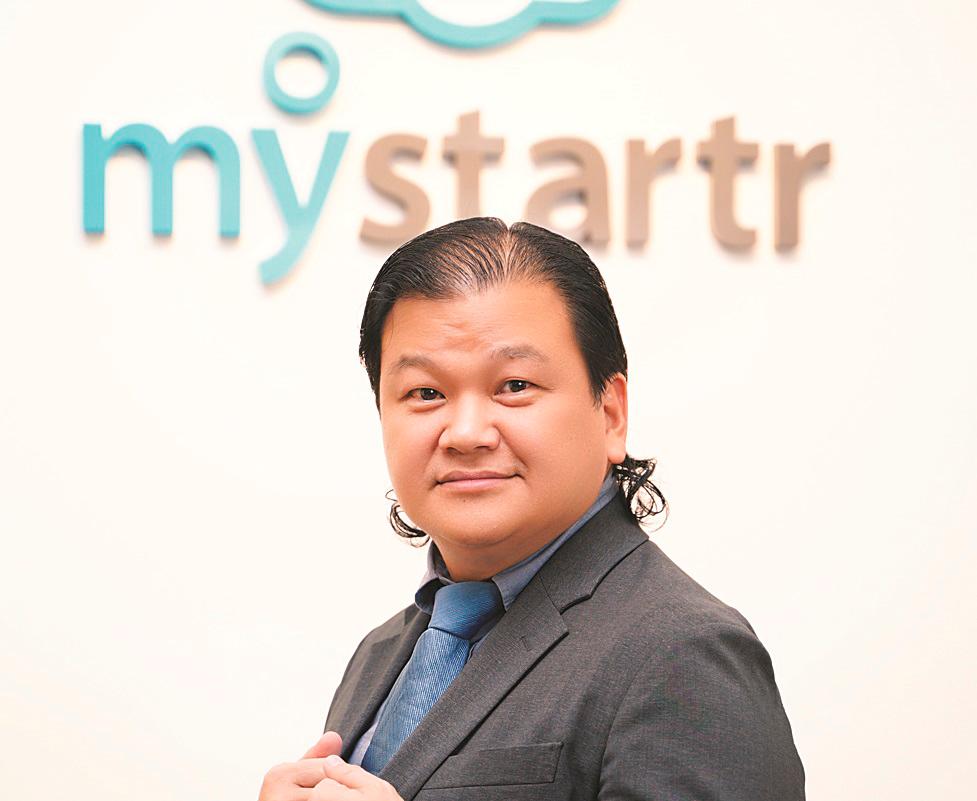PETALING JAYA: Equity crowdfunding (ECF) platform MyStartr Sdn Bhd is seeking approval from the Securities Commission Malaysia (SC) to operate a secondary market for the trading of issuer’s shares, said founder and CEO Goh Boon Peng (pic).
“The secondary market will be a place for all ECF investors to trade their shares, because currently all the shares are under private companies and they cannot sell or buy freely. But with the secondary market, they can do trading through that. We’ve already applied,” he told SunBiz in an interview recently.
Goh said MyStartr aims to achieve IPO status by 2027 as part of its five-year plan. “We might do our own fundraising through ECF as well,” he added.
MyStartr has exceeded its 2022 target after raising RM94 million from 60 campaigns and 59 issuers so far this year.
Goh said the platform initially targeted to list 50 issuers and fundraise RM80 million this year.
“This year, we aim up to RM80 million (because) market is growing and next year, I can see more investors joining ECF,” he said.
In 2021, the platform raised RM49 million for 29 issuers or campaigns and while in 2020, it raised RM19.5 million for 13 issuers or campaigns.
Goh is optimistic about the crowdfunding scene in Malaysia, especially for ECF, which he believes has room to grow.
“Malaysia has 10 ECF platforms, add up all the investors the total is only 11,000, so it’s still in an early stage.
“As for the market outlook, it’s good because a lot of people have not invested in ECF yet. The market is still big. We will (continue to raise) more awareness campaigns, for investors especially those from outskirt areas.
“We are also going to set up an accelerator. We have an incubator already but we need to set up another accelerator for our own which is the whole ecosystem.”
Based on the platform’s performance in 2020 and 2021 during the height of the Covid-19 pandemic, he believes it accelerated the digitalisation of people looking towards investing into platforms.
Goh also believes the economy will benefit from investing in startups or micro, small and medium enterprises (MSME) because the proceeds raised will be invested back into the market through the hiring of new employees or marketing.
“We can fully utilise the capital from the market, to help our startups and MSME to boost their business to make us stronger to connect to the international market.”
Goh observed growth sectors in environment, social & governance (ESG), agriculture, tech-based startups and food & beverage (F&B) companies.
“On our platform, there are a lot of F&B-related projects. The F&B industry (has a lot of) potential for business. Especially food delivery, which grew exponentially during the pandemic as a lot of people couldn’t go out to eat.
“The food technology business, (which involves, for example) frozen food (has widespread appeal) which creates a lot of business opportunities,” he said.
In addition, Goh said the challenges facing local startups are mainly due to lack of exposure, shortage of venture capital funds and talent.
“First of all will be exposure. In Malaysia, a lot of startups, especially those in the Chinese community, do not have a lot exposure. That is one of the important tasks we are doing.
Second, Malaysia (is) short of venture capital, that’s why crowdfunding plays an important role for the startups.
“Third will be talent especially for startups (which) need a lot of IT-talent. Those technical talent are difficult to get and expensive,” Goh said.









